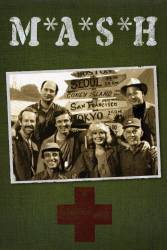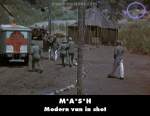Are You Now, Margaret? - S8-E2
Factual error: Then camera Klinger is using is not period correct. Those Brownie cameras were not around at that time.
Factual error: The Chinese soldier holding the grenade in the operating theatre is speaking Japanese. (00:20:00 - 00:22:00)
Factual error: While eating, General Haggarty was told about how Conway should be a cook. Haggarty said "Change his (Conway's) MOS. MOS means Military Occupational Specialty, your job in service. Since M*A*S*H was set in the early 50's, Haggarty wouldn't have said that, because 'MOS' wasn't used until 1965.
Suggested correction: "MOS" most certainly was used during the Korean War. In 1965, the MOS system was simply changed, not created.
I perhaps misspoke. It was titled PMOS, and revamped in 1965 as just MOS. My apologies and thanks for the info.
According to "Introduction to Special Regulations SR 615-25-15, Enlisted Personnel Military Occupational Specialties" from the Department of the Army in November 1950, it's MOS. The "P" just means primary, but MOS was/is used way more than PMOS.
Factual error: In the Swamp, Dr. Wu says "maeu gamsahabnida" when taking out the needle. It was translated as "Dr. Wu says the treatment is completed." The correct translation is "thank you very much"
Factual error: When the bird Charles lands on the land mine, you can see thing bounce on one side of the explosion. If the bird had really landed on the mine, it would have been obliterated.
Suggested correction: Anti personnel mines are specifically designed to badly wound someone rather than kill them outright, as it takes more people to deal with a wounded casualty rather than if they were dead. Movies exaggerate the blast effect as anti-personnel mines don't actually blow anyone to pieces, even a large bird.
True, but in this instance, it was a small bird. The mine in question can severely maim or destroy limbs, therefore the bird shouldn't have been seen.






